2021-22 Tidbits
World Chess Championship
In the most important chess event of the year, Carlsen easily defended his world title against Ian Nepomniachtchi in Dubai played during Expo 2020. It was originally scheduled for the latter half of 2020, but was postponed until 2021 because of the COVID-19 pandemic.
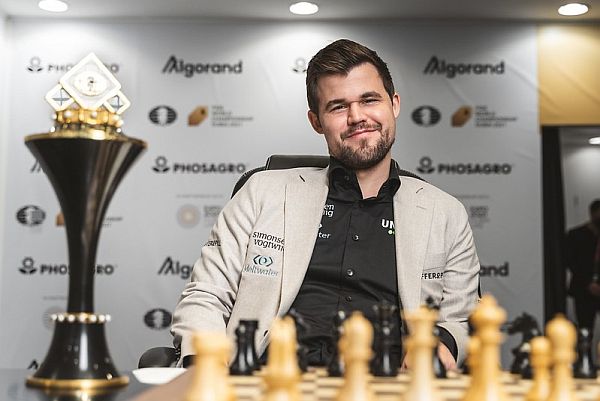
The board position after White's 130th move as per seven-piece endgame tablebases, shows this as a drawn endgame until, in this position, Nepo played 130... Qe6?, allowing Carlsen's decisive advance of all pieces.
Game 6 was a 136-move historic win for Carlsen that lasted 7 hours 45 minutes. It is the longest game in the history of the World Chess Championship, surpassing the previous record, a 124-move draw in game 5 of the World Chess Championship 1978 between Anatoly Karpov and Viktor Korchnoi, which was ultimately drawn after Korchnoi missed a win.
The Guardian commented that Nepomniachtchi went from having Carlsen on the ropes under clock pressure at the first time control, to coming within five seconds of losing on time himself, to finding himself squeezed toward submission in a positional endgame by a relentless foe operating with engine-like precision as Friday turned to Saturday until finally giving in with an inaccuracy on the 130th move. When the Russian resigned after midnight and the curtain dropped on the longest game ever played in a world title match, the playing hall erupted in applause.
It was a contest of extreme cognitive, emotional and physical intensity – and Carlsen admitted that dragging his opponent into deep waters, making it a test of endurance and stamina as much as skill, was in his plan. “Part of it was by design at some point”, he said. “I thought I should make the game as long as possible so that we would both be as tired as possible when the critical moment came. That turned out to be a good strategy.”
As per the great Anatoly Karpov, the reason for the tragic turn of the game was psychological and mental, when Nepo realised that he had missed too many opportunities. And as they say in football, if you do not use your chances to score, your opponent will score.
It was crucial that Nepomniachtchi failed to score in the sixth game. After that, he was only a shadow of himself. The next games were not at World Championship level. Carlsen sensed his opponent's weakness and exploited it energetically. He won, not spectacularly, but very convincingly. Carlsen capitalizing on a series of one-move blunders by Nepo in Games 8, 9 and 11 to win another three points. This gave Carlsen a convincing match win with four wins, seven draws and no losses, 7.5-3.5. Only 11 out of 14 games were played.
Karpov opined that winning four games out of six is very rare. In fact, I can't remember anyone winning four out of six games in post-war World Championship matches. There have been some very sharp title fights, e.g. Botvinnik vs. Smyslov, where you had four wins in six games, but then both players won. The remaining games are not worthy of much comment.
Computer engines evaluating the moves played in the first five games, concluded that it was the most accurate title match in the event’s 135-year history. On the other hand, the margin of four wins and no defeats is the most lopsided result in a world championship since Capablanca's triumph over Lasker exactly 100 years ago.
The match looked “easy” for Carlsen in hindsight, but if game 6 had gone differently, the match would surely have been entirely different.
According to former World Champion Karpov, Nepo had a decent advantage in 1st, 2nd and 5th game. If he had played c4 at right moment in the 5th game, his advantage would have been very unpleasant. In game six, in which he had Black, it seems as if he was very close to a win. Now, there are many people who say that the computer shows that there was no direct win, but what the computer shows is one thing, but a practical game is completely different.... under the pressure of the clock, things are not so simple.
Alireza Firouzja: future world champion?
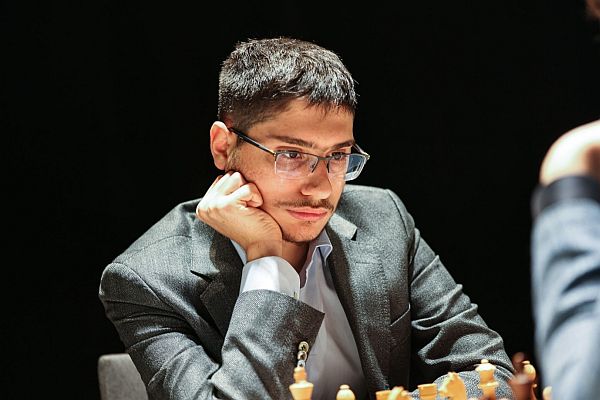
The man of the year was undoubtedly Alireza Firouzja, whose brilliant performances at the Grand Swiss in Riga and then the European Teams in Slovenia propelled him beyond the 2800 barrier to #2 ranking in the world.
The Iran-born 18-year-old, who now represents France, scored 8/11 in the Grand Swiss in Riga to earn a place in the eight-player 2022 Candidates, whose winner will play for the crown later next year. He reached his target two months younger than Boris Spassky at Gothenburg 1955, and is the third youngest Candidate qualifier, behind only Magnus Carlsen at 15 at the 2005 World Cup and Bobby Fischer at 15½ at the 1958 Portoroz interzonal. Garry Kasparov was the youngest world champion at 22 years and six months when he defeated Anatoly Karpov in their 24th and final game in 1985. Carlsen was also 22, but five months older, when he beat Vishy Anand in 2013. Only time will tell if Firouzja can eclipse those records.
A chess prodigy, Firouzja won the Iranian Chess Championship at age 12 and earned the Grandmaster title at 14. At 16, Firouzja became the second youngest 2700-rated player and won a silver medal at the 2019 World Rapid Chess Championship. In November 2021, at 18, he won the FIDE Grand Swiss tournament and an individual gold medal at the European Team Chess Championship. He won a bronze medal at the 2021 World Blitz Chess Championship.
Firouzja left the Iranian Chess Federation in 2019 because of their policies against Israeli chess players. He played under the FIDE flag until mid-2021 when he became a French citizen and began representing France, where he had already been living.
After his world championship match, Magnus Carlsen announced that he will play another World Championship match only if Alireza Firouzja is the challenger, which clearly shows that the champion regards Firouzja as his best potential challenger.
Former world champion, Vladimir Kramnik opines: “It's clear that Firouzja's play is not so complete yet. He still has lots of things to improve. But it's clear that I am impressed. And I believe he is going to play a World Championship match one day, let's put it this way. But is it going to be now? Well, there is a chance, but he is not the favourite in the Candidates, let's be frank, because, at minimum, he lacks experience, and so on. But there is a chance, and I guess he is going to work hard to try to make use of this chance. But even if he doesn't, it's not a drama. He needs to get experience, and experience playing the Candidates is really essential. It's very important for him that he is going to play in this event. I think the best for Firouzja, just my thinking, is not to be too concentrated on trying to win it, because he has time, he is young. There are some players in this Candidates whose time is starting to tick. They don't have so much time left. Firouzja has all the time in the world. Of course you always want to perform immediately and now. It would be amazing if he wins it, but in any case it will be an incredible experience. Maybe then, in a couple of years, he will become a more rounded player, and learn some things. Then maybe in two years, he will be a fully ready player. Who knows? Or maybe in four years, he will just be 22-23, it’s nothing. If you want to become World Champion, there is no reason to hurry. There are not many World Champions, so even if you are 30, it’s still okay!”
He adds: “He has a dream situation. He is young, he has already achieved a lot, he is playing the Candidates, he is getting incredible experience. In his case, I would just relax, try to do well and don' really think about winning it. Of course you can have it in your mind, but not keep all the pressure on you of trying to win it. Even for Magnus there is no guarantee, and why does it necessarily have to be Alireza? There are some incredible players also, like Aronian and so on. You just have a chance and can play, and okay, if you get there close to the end of the tournament, then all of a sudden you have chances, then you may start to put pressure on yourself. But if you start from the beginning, especially based on the media, based on all these people who just now believe the match is going to be Carlsen against Firouzja, it's not very productive, especially when you are young.”
World Rapid 2021
A quadruple tie for first between (in tiebreak order) Nodirbek Abdussatorov, Nepomniachtchi, Carlsen and Fabiano Caruana took place. According to the regulations, they shared the prize money, but only the top two played off for the title. Unfancied Abdussaturov beat Nepo to become the new world rapid play champion – a brilliant result for the 17-year-old Uzkek. It is remarkable that Nepo made a fantastic comeback after his loss to Carlsen less than a month earlier.

World Blitz 2021
Maxime Vachier-Lagrave beat Carlsen in the final round to share first with Duda and Firouzja and, as with the Rapid, it was the first two (MVL and Duda) who played off, with MVL becoming the new world champion. Eternal favourite Levon Aronian was leading after day 1 and kept going for much of the second day, but crashed in the final rounds to go out of contention.

2022 Candidates: final two spots
Ian Nepomniachtchi, Jan-Krzysztof Duda, Sergey Karjakin, Alireza Firouzja, Fabiano Caruana and Teimour Radjabov have already qualified for the 2022 Candidates to be played later in the year.
In a departure from preceding Candidates Tournaments, no player will qualify through rating. World #3 Ding Liren is unfortunately the most famous casualty of this new rule, who lost out for not being able to play for 2022 Candidates due to Covid-19 restrictions and visa issue.
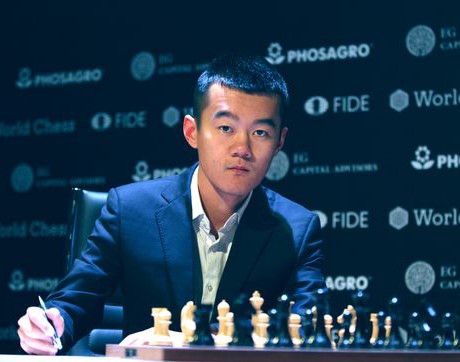
FIDE Grand Prix 2022
FIDE Grand Prix 2022 is a series of three chess tournaments to be played between 3 February and 4 April 2022, two at Berlin and one at Belgrade venues.
Hikaru Nakamura, (USA) beat Levon Aronian (USA) in the Berlin GP final on 17-Feb-2022 in tiebreak 2-0 after the classical games ended in a 1-1on the other hand, Nakamura barely made it to the semi-final while defending a difficult draw versus the young prodigy, Esipenko. Aronian had a powerful performance having entered the semi-final with a round to spare. However, between the two titans of rapid play, Nakamura showed better nerves to emerge victor. Nakamura’s wildcard entry into the GP had created some controversy for having not played any classical games in 2021.His qualification is still not confirmed but he has definitely bettered his chances of taking one of the two places in the Candidates 2022.

Pool A
1. Alexander Grischuk (Russia), 2764
2. Hikaru Nakamura, (USA), 2736 :FIDE president’s nominee
3. Andrey Esipenko (RUS), 2714
4. Etienne Bacrot (France), 2642
Pool B
5. Richard Rapport (Hungary), 2763
6. Vladimir Fedoseev (Russia), 2704
7. Radosław Wojtaszek (POL),2686
8. Grigoriy Oparin (Russia), 2681
Pool C
9. Levon Aronian (USA), 2772
10. Vidit Gujrathi (India), 2727
11. Daniil Dubov (Russia), 2720 :organizer’s nominee
12. Vincent Keymer (Germany), 2664
Pool D
13. Wesley So (USA), 2772
14. Leinier Dominguez (USA), 2752
15. Pentala Harikrishna (India), 2717
16. Alexei Shirov (Spain), 2704
The winners of Pools A, B, C, D were Nakamura, Rapport, Aronian and Dominguez respectively.
Due to health and visa issues, Dmitry Andreikin and Ding Liren were replaced with Andrey Esipenko and Radoslaw Wojtaszek, respectively. Earlier Wei Yi had been replaced by Vidit Gujarathi.
Meltwater Champions Chess Tour
Magnus Carlsen won his own Grand Prix of tournaments, the Meltwater Champions Chess Tour, 10 online chess tournaments. Wesley So and Levon Aronian took 2nd and 3rd place respectively.
Wijk aan Zee 2021
The tournament resulted in a surprise win for young Jorden van Foreest, who defeated Anish Giri in an Armageddon playoff after scoring 8.5 points each.
Andrey Esipenko (Russia), Fabiano Caruana (United States) and Alireza Firouzja (FIDE) followed closely with 8 points each.

Chess World Cup 2021
The surprise winner of this tournament was the Polish GM Jan-Krzysztof Duda, who won without losing any games either in classical chess or in the rapid tiebreakers. Karjakin and Carlsen took 2nd and 3rd place respectively.
The two finalists (Duda and Sergey Karjakin) qualified for the Candidates Tournament 2022. The rest of the final eight, except Magnus Carlsen, qualified for the FIDE Grand Prix 2022.
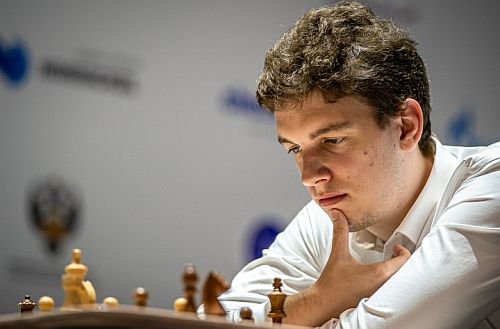
Norway Chess Tournament 2021
Carlsen won the Norway Chess Tournament pipping Alireza Firouzja, on tie-break.
Tata Steel Masters 2021
The organizers of the Tata Steel Tournaments continue to deliver high-quality, entertaining events year after year. The format with 14 players — most elite round-robins include 10 — has proven to be attractive for the spectators. More importantly, though, the inclusion of fighting players and rising stars is the crucial factor for the tournament’s success, as the audience is guaranteed to see at least a couple of exciting games in every single round.
Unlike last year, there was no drama on the final day of action in this edition, as perennial favourite Magnus Carlsen secured his eighth triumph in Wijk with a round to spare. In the end, Richard Rapport and Shakhriyar Mamedyarov tied for second place, a whole 1½ points behind the winner. Out of the 91 games played in the Masters, 42 finished decisively. Unfortunately this included Daniil Dubov’s four losses by forfeit. The young Russian tested positive for Covid-19 a few days after a member of his team had been infected. In a well-fought tournament, starting from round 6, we got to see at least three decisive games in every round until the end of the tournament.
Tata Steel Challengers 2021
Indian GM Arjun Erigaisi dominated the Challengers section, leading from round 1 and winning with a score of 10.5/13, with an impressive 8 wins and 5 draws. GM Thai Dai Van Nguyen (Czech Republic) and GM Jonas Buhl Bjerre (Denmark) took 2nd and 3rd place respectively.
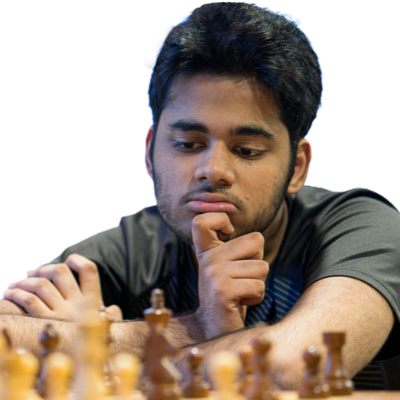
Anti-climax for Carlsen
In Oslo in the beginning of 2022, Carlsen was forced to a draw with Tallaksen Ostmoe (2466), rated 399 points lower than him to spoil his chances of touching ELO 2900 this year.
It reminded us of the incredible game of Luis Paolo Supi versus Carlsen in an online Blitz in 2020. When Chess.com held its Immortal Games contest in April 2021, this game came out on top. In just 18 moves, Brazil's GM Luis Paulo Supi defeated GM Magnus Carlsen with a stunning queen sacrifice which left the latter and rest of the world shocked.
First female chess grandmaster sues Netflix over false claim in Queen’s Gambit

Nona Gaprindashvili, the first woman to be named a chess grandmaster, sued the streaming company in federal court in September. Gaprindashvili alleges that a line from The Queen's Gambit, where a commentator incorrectly states that she had “never faced men”, is “grossly sexist and belittling”.
About the lead heroine Beth Harmon, it is claimed: “The only unusual thing about her, really, is her sex. And even that&aps;s not unique in Russia. There's Nona Gaprindashvili, but she's the female world champion and has never faced men.”
The real Gaprindashvili, now 80, and her legal team call this line “manifestly false, grossly sexist and belittling.” They write in the complaint that by 1968, the year in which this episode is set, she had competed against at least 59 male chess players — including 28 of them simultaneously in one game.
They also note, Gaprindashvili is Georgian, not Russian — a misrepresentation they say is made worse by the fact that Georgians suffered “under Russian domination” during and after the Soviet Union era.
The complaint accuses Netflix of disparaging Gaprindashvili's achievements to make for a more dramatic story and dismissing her earlier allegation of defamation without issuing a public apology or retraction.
It seeks at least $5 million in damages, arguing that the false statement caused Gaprindashvili “personal humiliation, distress, and anguish, as well as damages to her profits and earnings, and her ongoing capacity to engage in her professional livelihood in the world of chess.”
Nona was born in 1941 in Georgia and started playing professionally at the age of 13. She became female world champion at age 20 and held that title until 1978.
Over the decades, she has picked up 25 Chess Olympiad medals, held positions in Georgia's parliament and received the Georgia Order of Excellence. The Tbilisi Chess Palace is dedicated to her. She continues to participate in senior tournaments, winning the world championship title among players 65 and up, as recently as 2019. Gaprindashvili started competing against (and defeating) men in 1962, and has spoken and written about the difficulties she faced in countering the stereotype that female chess players were inferior to men.
The television series is based on a 1983 novel by Walter Tevis, which references Gaprindashvili but says she had “met all these Russian Grandmasters many times before.”